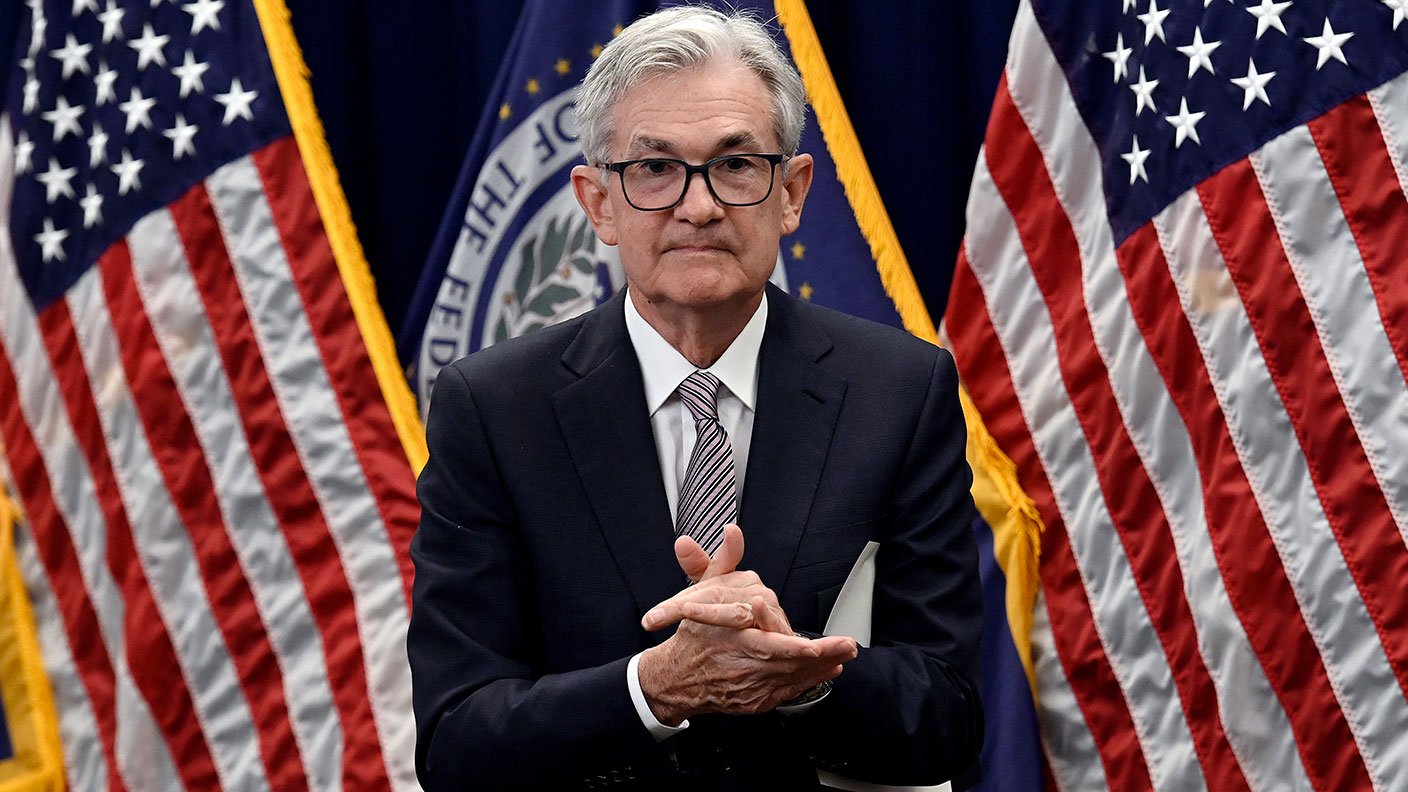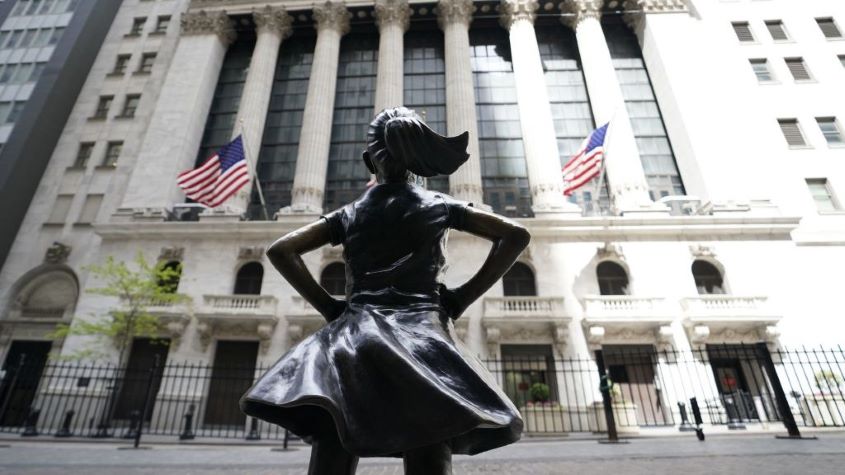Protecting your wealth from inflation won’t be easy – here’s what to do
US inflation hit a fresh 40-year high last week. That sent markets into a spin over fears of interest rates rising more quickly than expected. John Stepek explains what you should do to protect your wealth.


Get the latest financial news, insights and expert analysis from our award-winning MoneyWeek team, to help you understand what really matters when it comes to your finances.
You are now subscribed
Your newsletter sign-up was successful
Want to add more newsletters?

Twice daily
MoneyWeek
Get the latest financial news, insights and expert analysis from our award-winning MoneyWeek team, to help you understand what really matters when it comes to your finances.

Four times a week
Look After My Bills
Sign up to our free money-saving newsletter, filled with the latest news and expert advice to help you find the best tips and deals for managing your bills. Start saving today!
You’d think that markets would be used to nasty inflation surprises by now.
After all, they’ve been happening every month or so for the past 18 months.
Yet it seems that hope springs eternal. Because investors took Friday’s nasty inflation shock very badly indeed.
MoneyWeek
Subscribe to MoneyWeek today and get your first six magazine issues absolutely FREE

Sign up to Money Morning
Don't miss the latest investment and personal finances news, market analysis, plus money-saving tips with our free twice-daily newsletter
Don't miss the latest investment and personal finances news, market analysis, plus money-saving tips with our free twice-daily newsletter
The Fed isn’t your friend
On Friday, US inflation figures once again came in higher than expected. In May, US consumer prices rose at an annual rate of 8.6%.
Investors had been hoping that inflation had peaked in April; instead they got a fresh 40-year high.
This is scary for markets for one main reason: it means that any hope of imminent relief from the Federal Reserve has been crushed.
In fact, the outlook has become even scarier. Markets are now pricing in the risk that the US central bank might raise interest rates by three quarters of a percentage point at its next meeting – which is this week.
Rate-sensitive assets – which, putting it bluntly, is most of them – have therefore been hammered.
Everything from bitcoin to Tesla to the FTSE 100 sold off.
This is not a “fun” environment for investors, particularly not those who are used to the Fed being their big pal, rather than their worst enemy. But that’s not going to change in the near future.
So what can you do?
Nowhere to run to, nowhere to hide?
Over the last decade, investors have grown used to a pretty hospitable financial environment.
To be clear, it hasn’t necessarily been a happy one. I think most people have felt aware of a sense of tension beneath the surface. And I think this idea that it’s ever “easy” to make money as an investor is flawed. Almost every neuron in your brain and nerve ending in your body conspires against you being a good investor, so it’s never easy.
But in terms of results, most things have gone up. Even the stuff that has underperformed has still mostly gone up. And because inflation has been so low, most people have made “real” (ie, after inflation) returns as well.
Some people have also made life-changing sums by investing in what might most kindly be described, in the words of one apocryphal quote from the South Sea Bubble, as “undertaking[s] of great advantage, but nobody to know what” they are. Or to put it less kindly, borderline and actual Ponzi schemes of a number of varieties.
So yes, in hindsight, it’s been very easy to make money in recent years, even if it didn’t feel like it at the time.
What’s interesting is that investors still feel that it should be possible to make money. There’s some other asset out there which can protect and earn money during inflation, just as surely as an S&P tracker fund has made you money during the last decade.
I don’t think this mindset is very helpful. I’m not saying that you can’t make money during an inflationary period, but your focus has to very much change to “not losing money”. And if I’m honest, I’m not even talking “real” terms here. I’m talking nominal terms. If you “only” lose money in real terms over the next few years, that might well be a result for some people.
You might think this is too gloomy, but look at it this way: most assets have gone up over the last decade. Is it really so far-fetched to imagine that we might be in an era where most go down for a prolonged period?
I’m absolutely not saying that you should liquidate everything and move wholesale into cash. I’m just trying to emphasise this idea that you need to get out of the habit (if you’re in it) of thinking that there’s some magic asset somewhere that you can easily sit out this inflation storm in.
There are some assets which tend to do well during inflationary times, including gold, and to an extent (though it depends on timing) commodities. “Value” stocks will do better than “growth” stocks, partly because they’ve been cheap and partly because they generate lots of cash (when inflation and interest rates go up, the value of getting paid today rather than tomorrow becomes greater).
So position your portfolio accordingly. But also adjust your mindset from thinking about the return on your capital to thinking about the return of your capital. That way, if things work out, you’ll get a nice surprise, rather than the sequence of nasty shocks we’ve been seeing recently.
And you should definitely listen to Merryn’s latest podcast with James Ferguson. James was right on deflation both before and after the 2007 credit crunch and 2008 financial crisis. He then made the right call that inflation would take off following the pandemic. So I think he’s proved that his views are worth listening to on what might happen next.
Get the latest financial news, insights and expert analysis from our award-winning MoneyWeek team, to help you understand what really matters when it comes to your finances.

-
 Should you buy an active ETF?
Should you buy an active ETF?ETFs are often mischaracterised as passive products, but they can be a convenient way to add active management to your portfolio
-
 Power up your pension before 5 April – easy ways to save before the tax year end
Power up your pension before 5 April – easy ways to save before the tax year endWith the end of the tax year looming, pension savers currently have a window to review and maximise what’s going into their retirement funds – we look at how
-
 How a dovish Federal Reserve could affect you
How a dovish Federal Reserve could affect youTrump’s pick for the US Federal Reserve is not so much of a yes-man as his rival, but interest rates will still come down quickly, says Cris Sholto Heaton
-
 The outlook for stocks is improving
The outlook for stocks is improvingThis is the best of times for investors, says Max King. Global risks are receding, but few have noticed.
-
 The building blocks for an income strategy: resilience, growth and diversification
The building blocks for an income strategy: resilience, growth and diversificationAdvertisement Feature Iain Pyle, Investment Manager, Shires Income plc
-
 Investment platforms offering measly interest rates on cash holdings – is your cash working hard enough?
Investment platforms offering measly interest rates on cash holdings – is your cash working hard enough?The interest rate on cash you hold within an investment account can be as low as 0.75%. We look at the worst cash rates on the market, and what you should do with your cash instead.
-
 Rethinking ESG investing
Rethinking ESG investingAnalysis Sustainable ESG funds are coming under attack for a lack of focus. Investors need to be selective
-
 Can a woman deliver you better returns?
Can a woman deliver you better returns?Tips Women often make better stock pickers than men, delivering stronger returns for investors - but with fewer females managing funds, how can you make sure you take advantage of the feminist touch when picking funds? Kalpana Fitzpatrick on how to filter funds run by women and why it matters.
-
 Flat fees vs percentage fees - are you paying too much for your investments?
Flat fees vs percentage fees - are you paying too much for your investments?We investigate whether it’s better to choose an investment platform with flat fees, or whether percentage charges could work out cheaper.
-
 What is a dividend yield?
What is a dividend yield?Videos Learn what a dividend yield is and what it can tell investors about a company's plans to return profits to its investors.